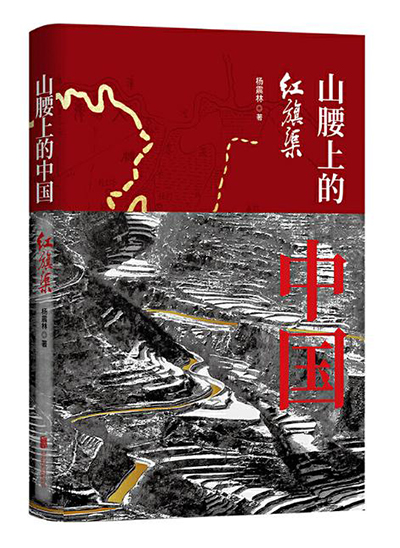Red Flag Canal’s valuable spirit still shines

China on the Mountainside: The Red Flag Canal
China on the Mountainside: The Red Flag Canal, written by sociologist Yang Zhenlin, focuses on the Red Flag Canal which is called “an artificial sky river.” It vividly portrays the entire construction process from conception, decision-making, launching to completion. The book gives an in-depth account of Chinese spiritual strength embodied in the canal’s construction process, revealing historical connotations and the contemporary value of the Red Flag Canal spirit.
The Red Flag Canal is a famous canal built by the people of Lin County (present Linzhou City of Henan Province) in the 1960s under extremely harsh conditions. It is a large-scale water conservancy project that took ten years to divert water from the Zhuozhang River in Pingshun County of Shanxi Province to the steep Taihang Mountains. The Red Flag Canal spirit featuring “self-reliance, hard work, solidarity and cooperation, and unselfish devotion” was born during the construction process, constituting an important part of the CPC’s revolutionary spirit pedigree.
The author upholds a grand historical view which connects the macro and the micro, and links the past to the future. When talking about the source of the Red Flag Canal, Yang traces the history of Zhuozhang River’s formation and governance in the context of the long-standing Chinese civilization. When discussing the canal’s construction history, he also touches upon Lin County’s history regarding mountain governance and water governance.
Why build the Red Flag Canal? Why was it a daring construction project? What made the construction possible? These three questions outline the book’s content. Years of drought, severe water shortages, thin soil, thick stones, and hard cultivation and harvest seriously threatened people’s survival in Lin County.
Under such circumstances, building the canal received great support in terms of manpower, unswerving spirit, funding and food rations, the foundation for mountain and water governance, and organizational advantages. Ultimately, the canal was completed under strong CPC leadership and the institutional advantages of concentrating strength to accomplish major undertakings, and with the people’s spirit of self-dependence, hard work, unity, collaboration, and selfless dedication.
Hu Cong is from Gannan Normal University.
Edited by YANG LANLAN
